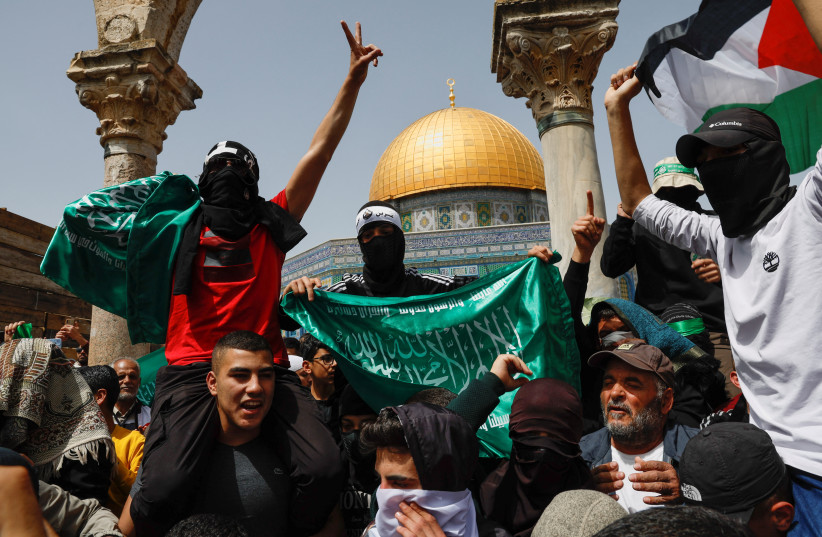For the Jewish people, the Sabbath of October 7 was our darkest hour since the Holocaust. The Hamas perpetrated unspeakable horrors reawakening past traumas. To justice and sanctify these atrocities, they invoke their religion.
This deeply challenges those, such as myself, who believe that mutual respect and understanding between Jews and Muslims can help build a better future for all. Can we reconcile the painful current reality with this vision?
I have come to understand, as the late Rabbi Jonathan Sacks said, that the term “fundamentalists” to describe violent extremists is a misnomer, for these are precisely the people who most violate the fundamentals of their religion.
What greater blasphemy can there be than committing atrocities in the name of God? But how is it that religion can be so perverted? My friend, Imam Talib Shareef, insightfully explained, “Religion is power, and power corrupts.”
What empowers Hamas and allows it to thrive is that too many have accepted their corruption of the teachings of a world religion. Too many more know better but remain silent. Both of these groups are complicit in the massacre that began this Saturday.

But there are those who have spoken out. Hundreds of Muslim leaders signed a public statement issued by the Global Imams Council (GIC) unequivocally condemning the massacre. In the condemnation, they refer to a legal ruling issued by the Islamic Fatwa Council, located in the Iraqi spiritual capital of Najaf: “It is prohibited to pray for, join, support, finance, or fight on behalf of Hamas.”
The ruling enumerated 11 correlations between Hamas and ISIS, including the use of suicide bombers, missile attacks against civilians, and genocidal aspirations, in the case of Hamas annihilating the Jews. The fatwa was issued in March, prior to the massacres. Its focus is on how Hamas’s corruption and crimes are a violation of Islam and a source of the suffering of the Palestinians in Gaza.
And Palestinians will, indeed, suffer. In response to the murderous massacres, Israel has no choice but to wage war against Hamas. The suffering this will cause is the responsibility of Hamas and their apologists. The October 7 massacre was thus a triple crime – against Jews in Israel, against Islam, and against Palestinians in Gaza.
Hamas's crimes against Israel, Palestinians in Gaza, and the religion of Islam
One example of Hamas’s sacrilege is the cynical way they use al-Aqsa Mosque in Jerusalem as a pretext for murder and terror. This is an Orwellian inversion of reality. During last Ramadan, Hamas activists fired fireworks inside the mosque.
This left Israeli security no choice but to intervene, providing a pretext for Hamas to claim that the mosque had been violated, which in turn justified the murder spree they then launched, killing, among others, the wife and daughters of my friend Leo Dee. They have named the current campaign of massacres the “al-Aqsa Flood” as if it were a response to the mosque’s violation.
The use of al-Aqsa to justify the massacre of Jews is profoundly sacrilegious. In fact, al-Aqsa Mosque should be a symbol of the close, even intimate relationship between Islam and Judaism. It is an inversion of what should be the meaning and significance of the fact that al-Aqsa Mosque is located on Judaism’s holiest site, the Temple Mount. This is where, according to Muslim tradition, Mohammad received the commandment of prayer.
A reference to al-Aqsa first appears in the 17th surah (chapter) of the Quran, and is part of the basis for identifying its location as Jerusalem in that the surah then speaks of the Children of Israel and of the ancient Temple. The term al-Aqsa means “the farthest.” This nomenclature is moving from a Jewish perspective as the Bible tells that upon the dedication of the Temple, King Solomon asked God to listen from that site also to prayers of the non-Jews who have come from a “far land.”
The Quran’s account of Mohammad’s journey to the farthest mosque could be seen as a response to this prayer.
From both a Jewish and Muslim perspective, the site should be embraced as a center of connection. For centuries, the link between the ancient temple and the mosque was a source of pride for many Muslims.
Coins have been discovered that were minted by the Umayyad Caliphate in the 7th and 8th centuries, featuring the image of the seven-branched candelabrum from the Temple. The tragic contemporary reality is that Hamas promotes a denial that there ever was a Jewish Temple and regards Jews who enter or pray anywhere on the Temple Mount as defiling it.
For the sake of humanity, for the sake of God, people of all faiths must break the silence and speak out against those forces that have corrupted religion to bring evil to the world. All must call for a return to the fundamentals taught by major world religions: a shared and sacred humanity, responsibilities to the wellbeing of the other, a teaching which, if fulfilled, can bring blessing and healing to our broken world.
The writer, a rabbi, is the director of Ohr Torah Stone’s Blickle Institute for Interfaith Dialogue.
